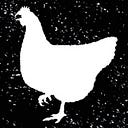Basement Memories
By M. Soledad Caballero
I’ve started sorting, organizing, and getting rid of things in the basement. We’ve lived in this house for eleven years and the basement has become a place stuff ends up in because we don’t know where else to put it. Some things are useful — tools, luggage, porch furniture. Others are from moves from graduate school, when my husband went back to law school, boxes my mom sent me after my parents’ divorce. I’ve got boxes from my early childhood in Oklahoma, to our move to Rock Hill and then Charlotte and my moves to Boston and, finally, Pittsburgh.
The boxes tell a version of my immigration too. There are boxes of correspondence from my first years in Oklahoma. Onion skin thin paper with Abuela’s looping cursive, my aunt’s small circular letters, drawings my cousin Manuel Ignacio sent. There are objects of my early childhood in Oklahoma. An Arkansas tourist spoon — we took a trip to a development that let us stay for free if we attended presentations about buying a unit; it’s how my parents could afforded vacations then. Photo albums — me as a girl in Chile at the beach, pictures of me at my Abuela and Tata’s house, school photos of me when I first moved to the States. These boxes are evidence of the moving I’ve done as an immigrant. I’ve thrown things out, but I have kept all the cards and letters from my family in Chile, the big clay Jesus my Tia Irma gave me, even though on a good day I’m agnostic.
When I was sorting the boxes, I found my parents’ wedding album. My mom must’ve given it to me after the divorce. My niece was visiting so I showed it to her as well as pictures from Chile, Oklahoma, Rock Hill, and Charlotte. I had pictures of my sister, her mom, as a little girl. She marveled at how young her Abuela looks, how silly her mom’s expressions are, how much her mom looked like her or her siblings. In my book, I Was a Bell, the last poem, “Rooted,” focuses on my niece. In the poem, there’s a sense my niece wonders about her history and her place. But in truth, she’s very clear that hers is an immigrant family, and she has multiple places she can identify with.
Recently my sister and I were talking about who we might be if we hadn’t immigrated. I sometimes wonder if I’m supposed to have regrets about being an immigrant. But it’s not a binary state for me. I’d be a different person and there would be wonderous things if I’d stayed. And there would be wondrous things I would’ve missed if I hadn’t immigrated. There are unknowns either way, so I try not to think about it in terms of all loss or gain. I’ve been lucky as an immigrant and I would’ve been lucky as if I’d stayed in Chile.
I miss what I remember of my life in Chile as a young child, but my Tata would’ve died even if I had stayed in Chile. Santiago would’ve grown and become a huge, wandering, snaking cement city with me there or not. And I don’t know if I would know as much as I do about the coup and what happened politically in Chile if I had stayed because there’s so much silence about that time, even now — at least in my family.
I’m 49 years old and I moved to the states at 7. I’ve lived in English most of my life. I don’t have many Chilean American friends. I travel to Chile as much as I can but long stretches happen between visits. For me, being an immigrant is feeling a sense of movement and that there are still stories to be found and written. I find myself gravitating toward the interstices. There’s no neat box to tie this all up with. My immigrant experience is not unique or special. There are so many of us who still think about the interstices of what it means to be an immigrant. I’m lucky I found a way to think through that experience in my writing. I hope for that kind of luck for all of us.
